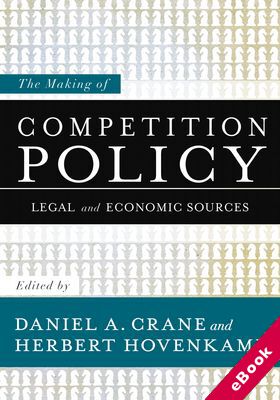
The device(s) you use to access the eBook content must be authorized with an Adobe ID before you download the product otherwise it will fail to register correctly.
For further information see https://www.wildy.com/ebook-formats
Once the order is confirmed an automated e-mail will be sent to you to allow you to download the eBook.
All eBooks are supplied firm sale and cannot be returned. If you believe there is a fault with your eBook then contact us on ebooks@wildy.com and we will help in resolving the issue. This does not affect your statutory rights.
This book provides edited selections of primary source material in the intellectual history of competition policy from Adam Smith to the present day. Chapters include classical theories of competition, the U.S. founding era, classicism and neoclassicism, progressivism, the New Deal, structuralism, the Chicago School, and post-Chicago theories. Although the focus is largely on Anglo-American sources, there is also a chapter on European Ordoliberalism, an influential school of thought in post-War Europe. Each chapter begins with a brief essay by one of the editors pulling together the important themes from the period under consideration.